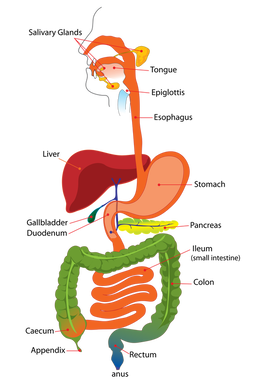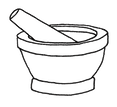 Herbalists traditionally view the digestive system as being centrally important to health. The digestive system includes the following organs:
From a scientific standpoint, digestion is "breaking down food into molecular particles of usable size and content." But perhaps the bigger point from the herbalist's point of view is that there is also a sense in which the digestive process is just one part of one larger, interconnected process which is not limited to the organs of the digestive tract. More broadly speaking, there is a bigger process of assimilation, metabolism and elimination, a dynamic and continuous interplay between the individual and the wider world which affects all aspects of our body and health. The digestion of foods in the digestive tract is a central part of this bigger process. Traditional systems of medicine often have incorporated a wider, more integrated model of the body which describes these broader processes. For example, in classical Greek and Islamic medicine this bigger process is called the "Natural Faculty," one of the four primary faculties of the body which govern fundamental body processes. The principal organ of the natural faculty is said to be the liver, an organ which herbalists often pay special attention to. Because assimilation, metabolism and elimination are such interconnected processes with effects throughout the body, herbalists often make connections between the state and behavior of the digestive tract and physical symptoms in other parts of the body. These are some examples of how those connections are made: Skin health
And there are so many more examples! Additionally there is the basic reality that the nutrients we ingest are only as beneficial to us as is our ability to assimilate them. Since good nutrition is so fundamental to health, this is why the strength and capacity of the digestive system is similarly seen as so fundamental. This is why herbalists often will make statements such as "you are what you assimilate!" Want to learn how to support your digestive health? Check out our other article about two of the most relevant kinds of digestive herbs: Want to get individual guidance on how you can support your digestive health? Our staff of clinical herbalists is ready to guide you. Learn more about getting support and coming up with an individualized health plan here: References
1 Comment
|
Details
RAILYARDCheck in here to keep updated on news and activities at the apothecary. Archives
April 2024
Categories
All
|
railyard apothecary
*These statements have not been evaluated by the Food and Drug Administration. This product is not intended to diagnose, treat, cure, or prevent any disease. For educational purposes only.
|
|

 RSS Feed
RSS Feed
